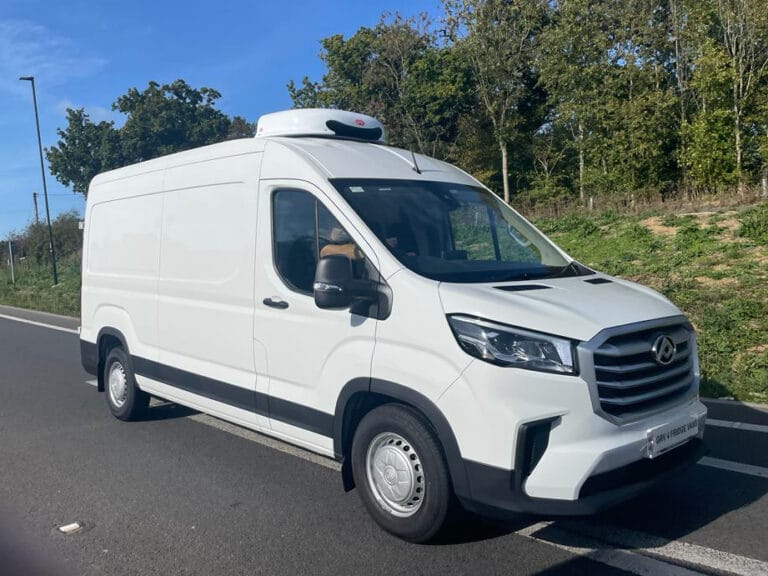When you’re ready to grow your business by investing in a refrigerated van, it’s essential that you do your research to make sure you make the right decision. Lease agreements typically last for more than two years, so you’re going to have to live with your decision for some time.
When you choose to purchase your vehicle, you’ll have the option to sell and upgrade at any time. But with a vehicle lease, you’ll be locked into a contract. This can be beneficial, as it means that your vehicle running costs will be fixed and predictable for the length of your contract.
With this in mind, we’re looking at some of the features you should look for when leasing a fridge van.

Choosing the right sized van for your business
Choosing the right van size will be the first hurdle you need to cross. Too large, and your operating costs could be much higher than they need to be. And if you choose one too small, you could be limiting your business growth and making inefficient choices.
There are three main sizes to choose from; small, medium and large. Small includes compact choices like the Citroen Berlingo and the Vauxhall Combo. These are perfect for city driving as they’re more manoeuvrable.
Medium includes models like the Ford Transit and the Mercedes Vito. These offer more cargo space and a roomier driving cab, making them perfect for longer distance deliveries.
Large includes models like the Mercedes Sprinter and the VW Crafter. These will often be available in varying wheelbase lengths and payload heights offering even more flexibility on the size.

Giving yourself space to grow
When choosing a lease van, remember that you’re going to have this vehicle for up to 5 years. This means you need to choose a vehicle that will enable your business to grow. Don’t stunt your growth by choosing something that is barely big enough for your current requirements.
Also remember that the standard cargo space will not be the same as an unmodified van. You need to check the dimensions of the actual refrigerated van model to ensure it is sufficient for your needs.
You should also look for a van that offers some flexibility. This could include dual zoning in the chiller unit to enable you to split the area and carry cargo at different temperatures. The ability to install custom racking will also make it easier to customise the space to your requirements while also giving you the space to grow.
The right lease for your business
Once you have found the right vehicle for your needs, it’s time to think about the leasing product. You’ll often have a choice between hire purchase and a finance lease. With hire purchase, you will have the option to own the vehicle at the end of the leasing period. With a finance lease, you are paying to use the vehicle, and will never own it.
There are pros and cons to each method which you should discuss with your business tax advisor to ensure you are getting the greatest benefit from your leasing agreement.

Consider your mileage requirements
Some leasing agreements come with a maximum mileage allowance every year. This is very much like hiring a car, which will have a maximum daily mileage and then a fee per mile for exceeding this.
The costs can quickly add up if you go outside of your allowance, so it’s important to choose a leasing agreement that meets your requirements if you’re worried about this. You could also choose a leasing agreement that does not have a mileage limit to help eliminate this worry altogether.
Find out who is responsible for maintenance
If you are leasing a new vehicle, you may be covered by a warranty to help protect against any unexpected issues. To keep this warranty intact, you might be required to carry out annual services. Find out who is responsible for this and if it is included in your leasing agreement.
It’s common for this to be included as it helps to ensure the vehicle is kept in top condition and less likely to suffer faults. However, not all leasing companies include this as standard, so it’s worth checking if you’ll need to budget for this added cost.
Final thoughts on leasing a fridge van
As you can see, there are lots of things to consider before choosing the right leasing agreement for your needs. Size is perhaps the most important thing to consider when selecting your van.
Next, you’ll need to consider the type of lease that will work for your business and your budget. Finally, look for extras such as maintenance and services to ensure you’re getting a great deal from your leasing agreement.
It doesn’t matter if your lease lasts for 1 year or 5 years, you need to make sure you understand the long-term financial implications.




